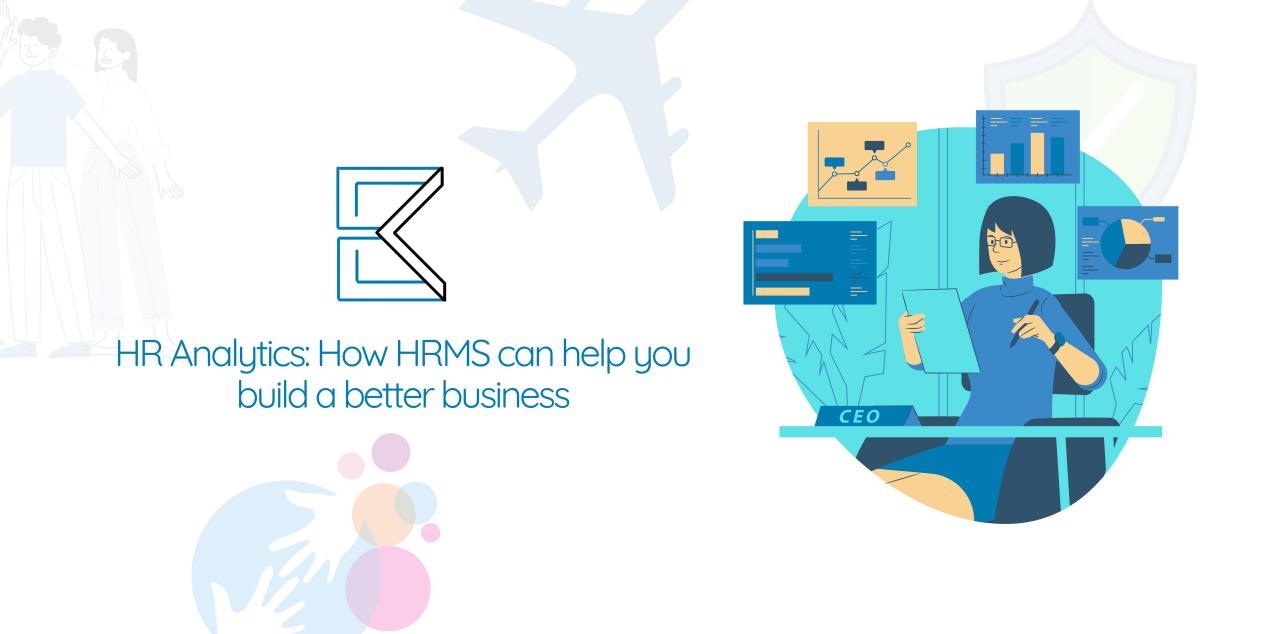HR Analytics : How HRMS can help you build a
better business
Human resources management is a critical aspect of any organization's success, and in today's data-driven world, HR analytics has become an essential tool for optimizing HR performance. HR analytics refers to the use of data analysis techniques and tools to gain insights into various aspects of HR, including employee performance, recruitment, retention, and engagement. By leveraging the power of data, organizations can make data-driven decisions that can help them enhance their overall HR management strategies.
Measurable Performance:
One of the key benefits of HR analytics is its ability to track and measure employee performance. By analyzing data on key performance indicators such as productivity, attendance, and job satisfaction, organizations can gain valuable insights into their workforce's strengths and weaknesses. This information can then be used to develop targeted training programs and performance improvement initiatives, as well as to make more informed decisions about promotions, raises, and bonuses.
Retain Employees, make them productive:
Another important application of HR analytics is in the area of recruitment and retention. By analyzing data on factors such as candidate sourcing, time to hire, and turnover rates, organizations can identify the most effective recruitment strategies and make data-driven decisions about hiring and retention. For instance, HR analytics can help organizations identify which job boards and social media platforms are most effective for sourcing candidates, as well as which factors contribute to employee turnover and how to address them.
Engage & Motivate employees:
In addition to improving performance and retention, HR analytics can also be used to enhance employee engagement. By analyzing data on factors such as employee satisfaction, feedback, and communication, organizations can identify opportunities to improve engagement and foster a more positive workplace culture. This can lead to higher levels of employee motivation, productivity, and job satisfaction, as well as improved business outcomes.
- However, HR analytics can be complex, requiring specialized skills and knowledge to extract valuable insights from data. Organizations may need to invest in training their HR staff or hire data scientists to help them analyze HR data effectively. Additionally, organizations need to ensure they have a robust HR information system that can capture and store the relevant data.
- Despite these challenges, the benefits of HR analytics are significant, and organizations that invest in HR analytics are likely to see a positive impact on their HR management strategies and business outcomes. With the right tools and expertise, organizations can leverage HR analytics to drive better business outcomes and improve the overall effectiveness of their HR function.
- End-to-end HR automation has become increasingly important in modern organizations, and there are several HR management systems available in the market that can help organizations achieve this goal. One such system is EmployeeVibes HRMS , which offers a range of HR automation tools designed to streamline HR processes and enhance HR performance.
- With EmployeeVibes HRMS, organizations can automate various HR processes such as recruitment, onboarding, attendance management, leave management, and performance management. The system is designed to be user-friendly and customizable, allowing organizations to tailor it to their specific needs. The platform is cloud-based, which means it can be accessed from anywhere with an internet connection, and it also provides advanced analytics and reporting features that enable organizations to gain insights into various aspects of their HR management strategies.
Conclusion
HR Analytics is a powerful tool that can help organizations gain insights into various aspects of HR, including performance, recruitment, retention, and engagement. By using data analysis techniques, organizations can make data-driven decisions that can help them optimize their HR management strategies and enhance their overall business outcomes. While HR analytics can be complex, the benefits are significant, and organizations that invest in HR analytics are likely to see a positive impact on their HR function and business outcomes.



